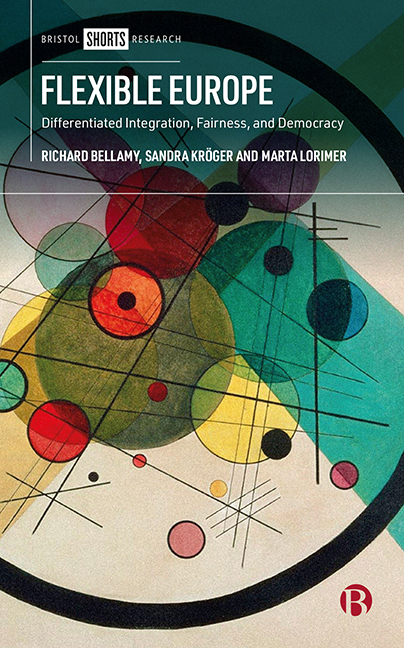Book contents
- Frontmatter
- Contents
- List of Tables
- List of Abbreviations
- About the Authors
- Acknowledgements
- Introduction
- PART I Normative Perspectives on Differentiated Integration
- PART II Political Party Perspectives on Differentiated Integration
- Conclusion
- Appendix A List of Respondents
- Appendix B Interview Questions
- Appendix C Survey Questions
- Notes
- References
- Index
Introduction
Published online by Cambridge University Press: 15 September 2022
- Frontmatter
- Contents
- List of Tables
- List of Abbreviations
- About the Authors
- Acknowledgements
- Introduction
- PART I Normative Perspectives on Differentiated Integration
- PART II Political Party Perspectives on Differentiated Integration
- Conclusion
- Appendix A List of Respondents
- Appendix B Interview Questions
- Appendix C Survey Questions
- Notes
- References
- Index
Summary
Must European unity come at the expense of national diversity? Both proponents and opponents of European integration often believe so. Many supranationally minded pro-Europeans consider the European Union's (EU) historical goals of peace and prosperity as requiring and promoting the overcoming of national differences through greater economic and political integration and the creation of a common European identity alongside the single market and monetary union (Haas, 1958, p 16). By contrast, many more intergovernmentally disposed pro-Europeans (Moravcsik, 1993, p 480), as well as outright Eurosceptics (Streeck, 2019), criticize such moves for failing to take account of the important social and economic disparities between the member states that they believe make common, supranational, ‘one size fits all’ policies inappropriate. They contend these differences both reflect and give rise to divergent political preferences that can only be adequately recognized by retaining national sovereignty and the capacity for self-determination of the various peoples of Europe. This book explores the attractions and drawbacks of differentiated integration (DI) as a way of reconciling these two camps. A mechanism increasingly adopted from the 1990s, it allows some member states to be exempted or excluded from participating in certain existing EU policies, and other member states to cooperate in new policy areas and integrate further than some may be willing or able to, with the result that not all policies and standards apply uniformly across the EU (Schimmelfennig and Winzen, 2020). As such, it offers the prospect of a more flexible Europe, capable of combining the demand for unity advocated by supporters of greater integration with the ongoing claims for the recognition of diversity insisted on by its critics.
The issues provoking these competing visions of European integration and driving the move to DI have become ever more urgent (Bellamy and Castiglione, 2019, pp 1– 2). The enlargement to Central and Eastern Europe from 2004, the Eurozone crisis of 2009 and the migration crisis of 2015/16 have heightened the tension between unity and diversity within the EU. The widening of Europe to include a number of poorer and less developed states that had only recently emerged from authoritarian rule greatly increased the socio-economic and political heterogeneity of the EU. The Eurozone crisis not only highlighted the continuing economic disparities among the euro states but also led many to argue that without a further deepening of integration and the creation of a fiscal union the Eurozone would remain unstable.
- Type
- Chapter
- Information
- Flexible EuropeDifferentiated Integration, Fairness, and Democracy, pp. 1 - 24Publisher: Bristol University PressPrint publication year: 2022



